How Private Investigators Dig Up Dirt On People
April 3, 2021 - Reading time: 14 minutes
Updated on: October 4, 2025
One of the tasks that private investigators perform on a regular basis is "digging up dirt" on people. The phrase "digging up dirt" can be used to describe any activity which might result in undesirable facts coming to light about a subject. Uncovering negative facts about a person, or their past, can prove to be useful in many different cases.
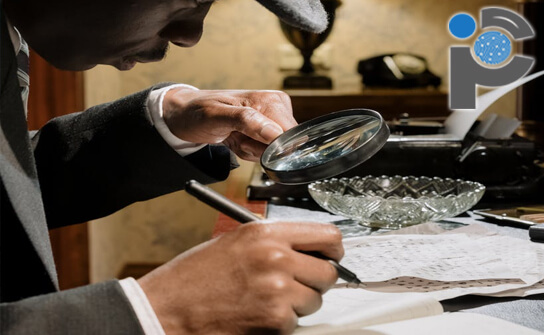
How to private investigators dig up dirt on people? We've put together this list to offer some insight. For related reading on vetting and records, see How to Check Criminal Records (UK): Essential Information and What do Background Checks in the UK Include?.
1. Personal surveillance
"Personal surveillance" is simply the act of watching a person, following them, and collecting photos/video as evidence of their activities. Surveillance operations can run in duration from 1 day, to several weeks or months in some cases.
The belief with this strategy is that if you watch a person for long enough, that eventually they will do something which could be viewed with a negative light. Perhaps they are seen travelling to a massage parlour, a strip club, or another adult entertainment venue. Maybe they are seen to attend political gatherings which might not be inline with their claimed beliefs.
Gathering evidence of the subject making visits into any such places could seriously harm their reputation and be used to discredit them.
2. Social media research
With social media growing in popularity in recent years, it's difficult to find someone that does not have a digital footprint and a social media presence of some kind. Private investigators tend to maintain multiple different social media profiles, which they can use to befriend the subject… By using sock puppet accounts, detectives can represent themselves as attractive members of the opposite sex or successful business people in a relevant field to the subject's occupation, for example. We tend to find that attractive members of the opposite sex are the best choice when it comes to befriending a person on social media.
![]()
Social media research can prove to be useful in many cases. From the subject sharing controversial opinions or politically related posts, to engaging in arguments or even becoming abusive, there are many different ways that a person can make themselves look bad through social media. Our job can be to trawl through their posts and find material which shines another light on their character.
Social media research can also prove beneficial when it comes to conducting personal surveillance, in terms of learning about the subject's routine and which locations they visit on a regular basis, among many other things.
Related article: What Are Private Investigators Allowed To Do in the UK?
3. Going through their rubbish
While this is not a tactic that tends to be used by our firm in particular, there have been many documented cases of private investigators going through people's garbage in order to find incriminating evidence.
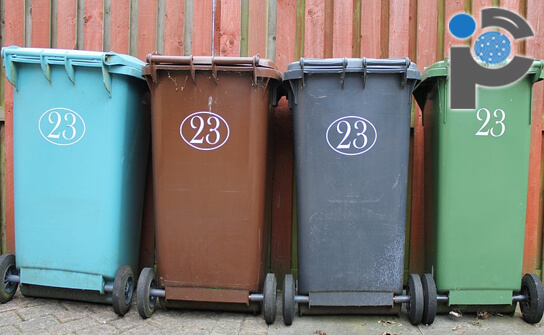
People often discard paperwork and documents which can be used by identity fraudsters; which is why it's a good idea to shred any private documents before disposing of it in your wheelie bin. Despite the risks, many people simply do not take the step to shred their paperwork before disposing of it.
Although a taboo subject for many, private investigators have been known to dive through rubbish in order to gather evidence or dig up dirt on people.
4. Finding disgruntled spouses
If your goal is simply to "dig up dirt" on the subject, then a good method of achieving this can be to find disgruntled spouses, business partners, or even friends. They can then be interviewed and attest to the subject's bad character.
Finding previous spouses can often be achieved through searching records, and past business associates can be located through researching any firms where the subject has previously held directorship or shares. Social media research can also help to provide clues and fill in blanks along the way.
5. Creating a honeytrap
A honeytrap assignment can be a great opportunity to get close to the subject, gain their trust, and potentially uncover incriminating information about them.
So, what is a honeytrap? A honeytrap would involve sending an attractive member of the opposite sex, or the same sex depending on their preferences, to speak with the subject with the goal of starting a romantic exchange.
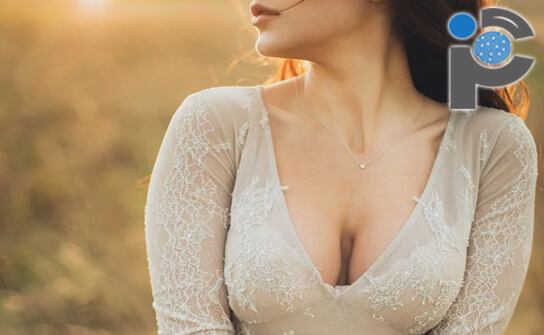
While honeytraps are typically used during infidelity investigations, they can also be utilized for other purposes, depending on the needs of our client.
Once the agent has gained trust from the subject, they might be more likely to share information which they otherwise would not divulge to a stranger. These exchanges can then be recorded and used to our benefit.
While honeytrap assignments are traditionally initiated whilst the subject is in a public place (such as a bar, club, or restaurant, for example), more honeytrap cases now involve initiating contact through social media or dating sites.
6. Check their records
Checking people's records can prove to be an excellent method of digging up dirt and discrediting them. Whilst a parking fine or speeding ticket might not prove too much a cause for concern; if the subject is (or has previously) attended crown court to face allegations of violent or sexual offenses, for example, this could prove to be extremely damaging to their character.
Private investigators are experts at accessing such data and finding evidence of a person's court appearances, or judgements which have been made against them. These checks are often more thorough and in-depth than standard DBS checks which are often used by employers. If you’re exploring the records angle, you may find these helpful: How to Check Criminal Records (UK): Essential Information, Can Private Investigators Check Criminal Records in the UK?, and What do Background Checks in the UK Include?.
7. OSINT (Open Source Intelligence) investigations
OSINT refers to gathering information from open sources: public websites, forums, social platforms, search engines, company filings, and, where legally permissible, references to leaked datasets. In some cases, when a website has been hacked, portions of its user database may circulate online. That material can sometimes reveal details like email addresses, phone numbers, usernames, or evidence of accounts on sensitive platforms (for example extramarital dating sites or adult services marketplaces). We are not providing legal advice here: laws are complex and context dependent, but in some situations leaked data may subsequently be accessible in the public domain. Ethical investigators assess the provenance and legality of sources before use.
As a basic self-check, you can use HaveIBeenPwned to see if an email address has been linked to known breaches. Professional OSINT goes much further, pivoting across aliases, usernames, breached keywords, and historic snapshots, to map a subject’s digital footprint. For broader vetting alongside OSINT, see our guides on what UK background checks include and whether PIs can check criminal records.
Why do private investigators dig up dirt on people?
At a practical level, investigators take these instructions because clients pay for fact-finding. The motivations vary widely and can include discrediting political or business rivals, probing reputation risks before a deal, gathering leverage in family disputes, and safeguarding loved ones by running background checks on a new partner. Any ethical or legal investigator weighs the merits and purpose of the request, as well as the lawful basis for processing data, before proceeding.
In the UK and other jurisdictions, court record discovery (where accessible) can reveal whether an individual has appeared, or is due to appear, in Magistrates’ or Crown Court. Not all matters are covered by press or online reports, so skilled records work can surface information that typical searches miss. If you’re exploring this path, our primer on checking criminal records in the UK provides useful context.
Is a private investigator digging up dirt on you?
If you believe that a private investigator might be trying to dig up dirt on you, then we can help by providing counter surveillance. Counter surveillance can allow us to confirm that a private investigator is following our client. We also provide a bug sweeping service, which can be used to detect unwanted bugging devices such as hidden cameras, microphones, or GPS tracking devices.
As private investigators ourselves, we are fully aware of the different tactics that a detective agency might use to gather information on a subject. And if you suspect that you're being followed, or your property has been bugged, then we can help – our detectives cover all areas of the United Kingdom. Please feel free to browse our website for more information about our services or get in touch with us for a free quote.
Related articles
- 6 Signs That You Are Being Stalked
- GPS tracker FAQ: Is it legal to fit GPS trackers in the UK?
- How Long Do Private Investigators Follow People?
- Why would a private investigator want to talk to you?
- How to Check Criminal Records (UK): Essential Information
- Can Private Investigators Check Criminal Records in the UK?
- What do Background Checks in the UK Include?
Need a Private Investigator in the UK?
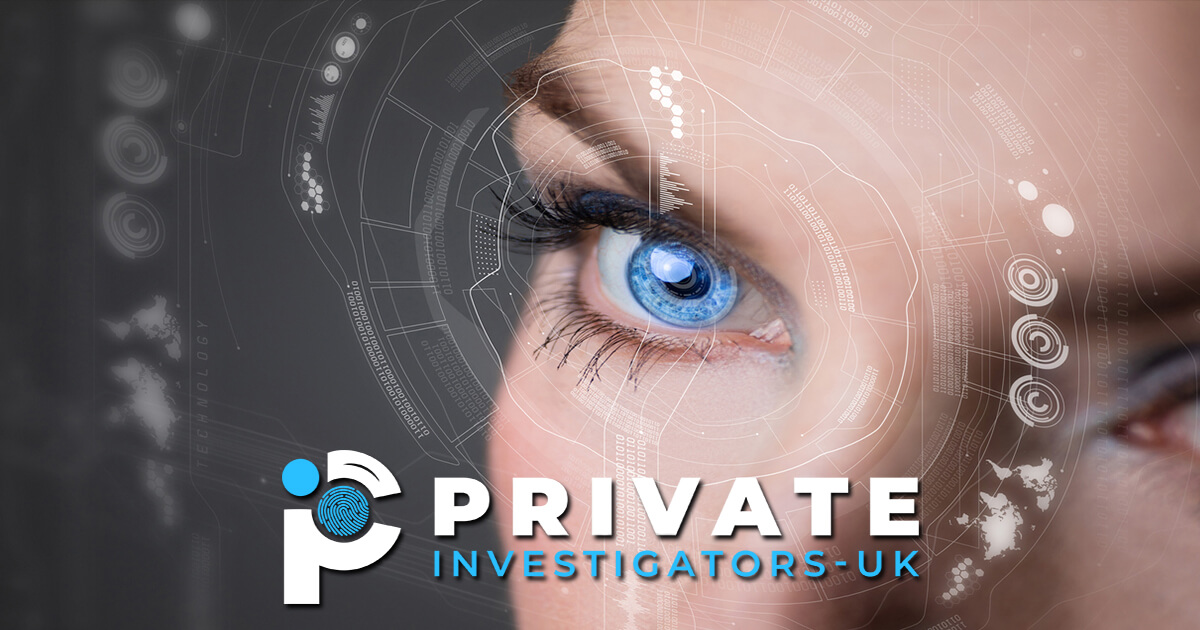
We are a UK-based private investigator agency handling surveillance, background checks, OSINT, and counter-surveillance nationwide. All enquiries are treated in confidence.
Can Private Investigators Have Tattoos?
March 31, 2021 - Reading time: 5 minutes
Updated on: April 30, 2024
Can private investigators have tattoos? This is question that I was recently asked and the answer might surprise you.
Yes, private investigators absolutely can have tattoos. In order for our detectives to work discreetly in any environment, we work with a range of different agents, from all different backgrounds and walks of life… that includes people with tattoos. In some cases tattoos may even prove beneficial to a case, if they help an agent to better blend into their surroundings and cause the subject, or any onlookers, to view them with less suspicion.
As a leading detective agency based in the UK, we believe that in order for us to achieve the best possible results, that our agents should properly represent the British population. With a growing number of people in the UK sporting ink, tattoos are becoming more and more common, and many of the agents working for us are tattooed.
Tattoos in the private detective industry
The stance that a detective agency takes towards tattoos will likely vary depending on the role of the agent or employee, as well as the management's personal preference.
For example, some firms might prefer that their front-of-house office staff do not sport visible tattoos; however, even firms with such policies are likely to take a different stance when it comes to agents that are tasked with digging up dirt on subjects and performing investigations in the field.
We believe that it would be unwise for a detective agency to avoid all tattooed people, and cause them to miss working alongside many different skilled and talented individuals.
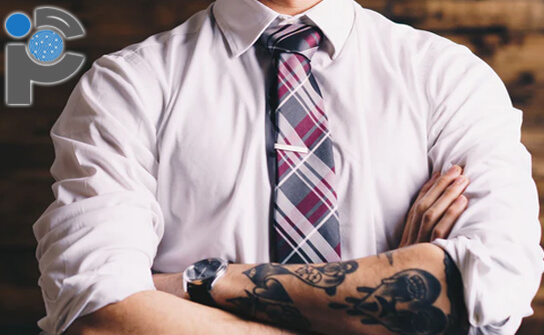
Tattoo advice for budding PIs
If you are a young person reading this blog post, or someone that is considering a career in private investigation down the line; We would recommend to avoid tattooing yourself in visible areas such as the hands, neck, or face. Avoiding tattoos in these areas can help to provide you with a choice: "Do I want to show my tattoos or not?" and "Would showing or hiding my tattoos be the best choice for this case?".
Having the versatility to choose between showing or hiding your tattoos would be the best option in most cases, and tattoos on the face or neck in particular tend to be more memorable than those on other body parts, which might prove to be a hinderance whilst completing surveillance assignments (if you have a large tattoo on your neck, for example, it will likely be easier for the subject of the investigation to identify and remember you).
Our firm does not have an issue hiring tattooed people, and with many of our agents coming from former military or law enforcement backgrounds, tattoos are to be expected.
However, this is not to say that all detective agencies are as tolerant. Visible tattoos might still be seen negatively by some employers, and career minded people should seriously consider their choice before deciding to get a tattoo - especially those which cannot be hidden by normal business attire.
Starting a career in private investigation can be difficult, with most firms looking for candidates with experience in the field. For those that are keen on pursuing a career in private investigation, our advice would be to concentrate on earning qualifications and experience in the investigative field.
If you are aspiring for a career in private investigation, then the best course of action would be to focus on achieving as many relevant qualifications as possible. A CV which is filled with an impressive list of qualifications and certificates that are related to the investigation industry, is much more likely to impress a potential employer than tattoos are.
Please click through to our blog post for more information on the subject of careers in private investigation.
Are attitudes shifting towards tattoos?
The current generation are more tattooed than ever, and we feel that old attitudes on this subject are gradually shifting to become more tolerant of tattoos. While there will always be some people that dislike tattoos, or describe them as appearing unprofessional in a business setting, these people are becoming more of a minority as time goes on.
Whilst attitudes might be slowly shifting, there will probably always be some employers that view tattoos with a negative light, and we would urge young people to err on the side of caution when it comes to body art.
Whilst conducting our profession as private investigators, we feel it’s important to keep an open mind and be inclusive of as many people from different walks of life as possible. We work with agents from all different races, religions, ethnic backgrounds, genders, ages, social statues, and so on.
This allows us to select the best and most appropriate agent for each case, which helps us to camouflage ourselves into our surroundings and gather evidence without arousing suspicion. We endeavour to use the most appropriate agent for each task wherever possible, and tattooed people can fit in better in a growing number of different settings.
Top 20 Surveillance Tips for Private Investigators
March 23, 2021 - Reading time: 16 minutes
Updated on: April 30, 2024
Surveillance one of the ‘bread and butter’ type services that is typically offered by private investigators, and as a leading detective agency based in the UK, surveillance is one of the core services provided by us.
We are able to provide our surveillance service across a wide range of different locations and environments across the United Kingdom. Contrary to private investigators’ depiction in popular TV and films, our work is often mundane and boring. Surveillance operations can often entail waiting in situ for many hours, for a window of opportunity to photograph to the subject which may last seconds in some cases. Maintaining concentration for the duration of a surveillance operation is key to reaching a successful outcome.
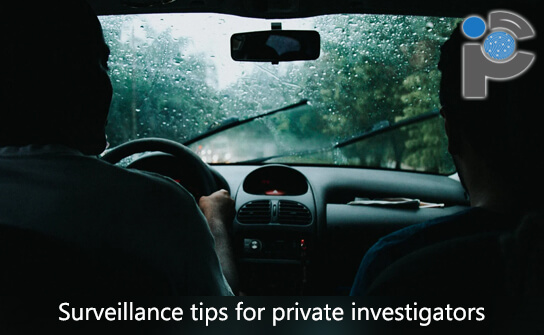
With that in mind, we have put together these top 20 surveillance tips for private investigators.
1. Do your homework
Before conducting surveillance, it's important to do some pre-investigative research on the subject, their lifestyle, and any places they are likely to visit during surveillance. Be sure to ask the client a set of questions which provides as much information as possible, specifically details which could aid in identifying the subject or predicting their movements, including any locations they are likely to visit.
Additional clues, or information on the subject's movements can be collected from their social media in many cases. Building a collection of social media accounts which can be used to befriend the subject can aid when performing this type of pre-investigative research.
2. Dress appropriately
After you have "done your homework" on the subject and any location they are likely to visit, you will be able to prepare yourself with suitable attire. This may seem like a trivial point but is in fact very important whilst conducting private investigations.
If you are going to be conducting surveillance on a beach, for example, then wearing a pair of jeans in this setting would not be appropriate. Remaining discreet whilst wearing clothes that are not appropriate for the situation can be extremely difficult, this is why it's important to understand the location of the assignment and choose clothes which will match that environment.
3. Keep your vehicle discreet
Vehicles which are being used during surveillance assignments should remain as plain and boring as possible. That means no stickers, no chrome accessories, and no engine or exhaust modifications which could make the vehicle louder. Even the smallest alteration to a vehicle has the potential to stick in a person's mind and help them to remember it at a later date. Keep your vehicle clean and repair any marks such as dents or scratches.
Keeping your vehicle discreet also means ensuring that you cannot be seen inside. We recommend blocking your windows with cardboard or foam cut-outs which are shaped to the size of your windows and covered with black fabric.
For more information on surveillance vehicles, check out our blog posts What type of cars do private investigators drive? and Window tint used by private investigators.
4. Conduct social media research
With many people choosing to share a surprising amount of personal information about themselves on social media, using these platforms to gain more information about a subject before conducting surveillance assignments is a common tactic used by private detectives. Many detectives will also research the subject's social media profiles whilst waiting in situ during the actual surveillance.
Often the smallest detail can act as a vital clue whilst conducting surveillance, and we have lost count of the times that social media research has benefitted the course of an investigation. A competent detective should endeavour to use all information available to bring about the best possible outcome, and social media is another tool which can be utilized to our advantage.
5. Get setup straightaway
Before conducting surveillance, you should already have a good idea about the best vantage point or position where you intend to park up and wait for the subject; this again falls back on our first point of conducting pre-investigative research.
Using tools such as Google Maps, Street View, or by making a visit to the location before conducting surveillance, can all help to build an idea about the best place to wait, photograph the subject, and/or begin a vehicle pursuit. Figuring out the most likely route the subject is likely to take can also aid in deciding how to position your surveillance vehicle.
You should be prepared with this information, and already having it to hand before conducting surveillance will help you to get setup and in position straightaway. Getting setup straightaway can help to mitigate suspicion which might otherwise be aroused by curtain-twitching neighbours.
6. Pay full attention at all times
Private investigation is a profession which few people experience or understand… Often is the case that we will be waiting in position for several hours for a window of opportunity which could last only a few seconds. Whilst we are conducting surveillance it is imperative that the agent pays full attention at all times, in order to react quickly and secure the "money shot".
Getting distracted by playing games on your phone or watching videos has the potential to jeopardize the success of a surveillance operation. All agents must remain focused and alert at all times, with one eye always focused on their surroundings.
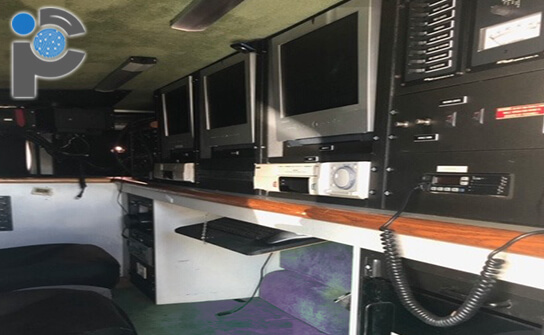
Photo: Even in a purpose built surveillance vehicle such as this one, the agent operating inside this vehicle must remain alert and pay attention to their camera monitors at all times.
Our surveillance agents often keep themselves amused during surveillance assignments by listening to podcasts or music to try and fight the boredom whilst remain focused for several hours at a time.
7. Assess all potential outcomes
Whilst we are setup and waiting for a subject, we often use our imagination to try and predict all possible outcomes. For example, the subject might own a car which we anticipate that they will use, but could they choose to make their journey on foot instead? Might they use a bicycle or another mode of transport? In which direction are they likely to travel?
Unforeseen events can take place all the time, and especially whilst surveillance is being conducted. Assessing the situation, predicting all possible movements of the subject, and planning for how to deal with those potential eventualities, would be a trait of a competent private detective.
8. Identify distinctive features on the subject’s vehicle
Being able to recognise your subject’s vehicle at a quick glance can be an important ability whilst conducting surveillance. In order to improve your ability to quickly recognize their car, we find that it helps to identify and note down any distinctive features.
Distinctive features on a vehicle could include anything from the type of wheels that are fitted, whether the car has window tint, missing hubcaps, dents or scratches, chrome accessories, roof rails, badges… You get the idea. Being aware of any unique features, no matter how small, can really help to identify a vehicle, especially if you’re only able to see the car from a distance or at a side angle.
9. Be conscious of your surroundings and appearance
Whilst conducting surveillance, it’s important to remain conscious of your surroundings, your appearance, and whether you are blending in with your environment.
Firstly, don’t stare at people or their properties. Anyone that stops and stares will instantly be looked at with suspicion. Similarly, don’t loiter or park your vehicle near schools. Park in discreet locations, remain hidden inside your vehicle, be conscious of your surroundings and try to blend into them as much as possible.
10. Keep your cameras hidden
A person that is taking photos with a digital camera or camcorder will generally attract more attention than someone taking photos with their smart phone. Many people spend a considerable amount of time each day holding their phones, and they can be used to take photos/video far more discreetly than with professional camera gear.
Hidden cameras can also be useful in a number of different settings, and most competent detectives will have an arsenal of discreet cameras to choose from.
Whatever your environment, using professional camera gear will generally arouse suspicion from most members of the public, so whether you are on foot or inside a vehicle, try to keep your camera gear hidden at all times.
11. Be prepared for a long and boring day
Conducting surveillance can be an exhausting task. Monitoring a property and waiting for a subject often involves sitting in position for several hours, whilst maintaining focus on the subject’s property and waiting for them to leave.
Occasionally surveillance assignments can take unpredicted paths, and our client may wish for us to work overtime in order to capture more incriminating evidence. It is therefore essential that our agents are fully prepared for the length of surveillance that we are instructed to carry out, and potentially for even longer periods of time.
Make sure that you are fully prepared with suitable food, drinks, and that all of your devices are ready and good to go. While caffeine products such as energy drinks might be tempting to help keep you awake, they usually result in comedowns where you might find it more difficult to maintain attention. We recommend avoiding the consumption of any caffeine products whilst conducting surveillance.
12. Have a notepad and pen handy
This may seem like a trivial tip, but having the ability to quickly jot down notes can often prove beneficial during surveillance assignments. It’s important to record the times at which key events take place, or any small details which you might otherwise forget, as these points will prove to be critical information when later writing a report for the client.
Some surveillance agents even use voice recorders to record their notes. While voice recorders are usually quicker than manually writing onto a piece of paper, they should not be used in situations where the agent may be overheard by the subject or any onlookers.
13. Check your equipment
Before going out on a surveillance assignment, it would be wise to check all of your equipment. Check that all of the devices you might need are fully charged, and that they have enough memory available for the task at hand. Bringing spare memory cards can be useful in some cases, though in the current day and age high-capacity memory cards are very affordable and there shouldn’t be a need to switch out memory cards whilst conducting surveillance in most cases.
Remember to also check the time and date settings on your camera equipment to ensure that the timestamps are as accurate as possible.
14. Bring a change of clothes
In many surveillance cases (especially those which are taking place on foot), it can be a good idea to alter your clothing somewhat in order to make yourself less memorable to the subject.
It also pays to have spare clothing to ensure that you are comfortable, and suitably warm or cold, as the weather may dictate, during the assignment.
15. Keep binoculars or a monocular
If you decide to carry a pair of binoculars, or a monocular, inside your vehicle, then you might find yourself using it surprisingly often. For example, if you are trying to observe a person’s clothing from a long distance, or identify a subject as they approach from far away, or even checking a vehicle’s license plate number.
Although surveillance agents should obviously seek to avoid being seen using binoculars or a monocular, they can come in useful and are a good tool to have on hand in many different settings.
16. Fill up with fuel and use the rest room
Before arriving at a surveillance assignment, it would be a good idea to fill up on fuel and use the rest room, making sure that you are comfortable and prepared for whatever may occur during the assignment.
17. Maintain a safe distance
One of the most common mistakes made by rooky private detectives is not maintaining appropriate distance from the subject’s vehicle or property. Parking directly outside the subject’s property should be avoided in most cases… Most people will notice a vehicle they have not seen before parked directly outside their house, and a surveillance agent will seek to avoid this unwanted attention wherever possible. If a vehicle the subject has never seen before is instead parked outside their neighbour’s house, then it will be more plausible that the vehicle is visiting that particular house, and the subject will be less likely to remember the agent’s vehicle.
This point is highly dependent on the circumstances, as there are cases where an agent will need to remain very close to the subject or their vehicle/property in order to conduct surveillance and secure the best possible evidence.
18. Consider whether more agents are needed
While a lone detective can prove very effective in most cases, there are certain cases which will require multiple agents working at the same time in order to secure the best possible outcome.
Detective agencies are sometimes reluctant to explain the need for additional agents to their clients… With cost a consideration for most people, they may not wish to spend extra money hiring more detectives. However, if we believe that using multiple agents will produce better evidence, then we feel it’s important that our client is fully aware of this. Continuing with one agent when more manpower is required may end up prolonging the investigation and costing more money in the long run.
19. Always bring a tripod
As private investigators, our clients rely on us to gather the highest quality evidence possible - we usually capture at least 720p or 1080p video, or even 4K video in some cases.
One of the most important considerations when shooting video is that the camera remains stable, using a tripod or an anti-shake gimbal can help to keep your camera steady and ensure that the footage is smooth and crystal clear.
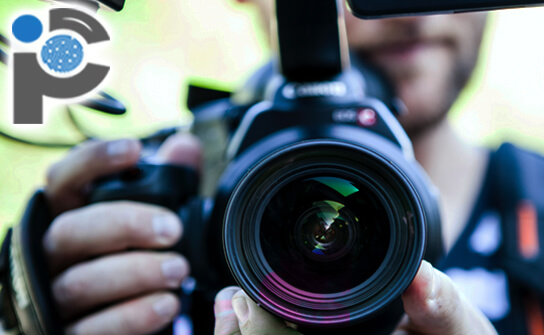
Consider which positions you are likely to shoot video from in your vehicle and setup your camera on a suitable tripod or gimbal.
20. Don’t forget your pee bottle!
It’s a matter of human nature that liquids which are consumed will eventually need to make their way out of the body. While conducting surveillance for multiple hours, the agent will typically seek to remain inside their vehicle and not leave for toilet breaks for the duration of that time. We will leave the rest of this particular point to the reader’s imagination!
Free private investigator resources
If you enjoyed reading this post, then check out these related articles:
How To Tell if a Private Investigator is Following You
February 27, 2021 - Reading time: 14 minutes
Updated on: April 30, 2024
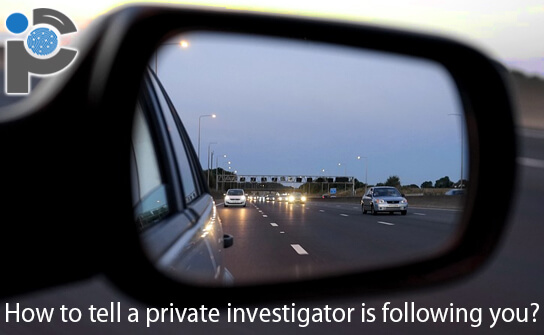
Have you ever wondered how you can tell if a private investigator is following you? The goal for private detectives is to remain hidden and unnoticed by the subject during an investigation, and if the investigation is conducted properly then the subject should never be made aware that they are being followed. However, there are certain clues to look for that a PI might be following you, and steps you can take to verify that this is the case.
Is there a reason for a private investigator to follow me?
This is the first question that you should ask yourself if you believe that you are being followed or watched by a private eye. Hiring a private investigator to conduct surveillance and follow someone around is not usually a cheap endeavour and is typically only undertaken for good reason.
Have you recently made an insurance claim which is likely to be investigated? Are you currently in the midst of divorce or child custody proceedings which involve allegations of infidelity or improper conduct? These are some of the situations where a detective may be instructed to place you under surveillance.
Perhaps you have been warned by your legal counsel that you may be placed under surveillance by a private investigator pending legal proceedings, or have suspicions that a partner or ex-partner may decide to keep tabs on you by hiring a private detective. If any of these points apply to you, then you might decide to be extra vigilant with the hopes of blowing the detective’s cover.
How to tell if a private investigator is following you?
If you suspect that someone might be following you, then this should act as a cause for concern. While private detectives operate within the law and are merely tasked with following and photographing their subjects, private investigators are not the only people that might place you under surveillance. An assortment of different crimes such as kidnapping, burglary, or extremism, all rely on an element of surveillance so that the perpetrator can gather intelligence prior to committing their crimes.
We have put together the following 12 tips that can help you to tell if a private investigator is following you.
1. Change your routine
People are creatures of habit and tend to form routines in their day-to-day lives. Most people take the same route to and from work every day, they shop at the same stores, and develop predictable routines. Perhaps you always mow the lawn on a Sunday afternoon or wash your car on Saturdays… Whatever the case, it’s likely that you have developed a routine which a private investigator would look to understand and use to their full advantage.
Changing your routine can help to notice any abnormalities and make surveillance a more cumbersome task. You could take different routes to work each day, for example, and try to keep a mental note of any vehicles in your rear-view mirror. If the same vehicle continues to reappear despite you taking different routes, this could be a sign that perhaps you are being followed by a private investigator.
2. False indicating and abrupt turns
If a person suspects that they are being followed, they will sometimes use tactics such as indicating to turn right, but instead turning left at the last moment. Whilst doing this they can check to see how the vehicle behind them behaves. Was the car behind also indicating to turn right but instead turned left? If this is the case then it can be taken as a strong indication that you are being followed.
3. Doubling back
Doubling back is another common tactic that a person might use if they believe they are being followed, and this tactic is effective in many cases. For example, during one infidelity related case, we were tasked with following a gentleman that was taking a break from his wife in a hotel. An agent was placed outside the subject’s hotel and after a period of time the subject left the hotel and was followed on foot.
The subject was followed for approximately 600 meters before he reached a crossroads. Once he reached the crossroads he stopped, turned around and walked back. We then followed him for several minutes before he again stopped, turned around, and double backed. This continued several times.
As it turns out, the subject was visiting the area again after some years and was trying to familiarize himself with the location. However, his tactic of turning around many times would have hampered the efforts of most detectives.
If you turn around more than once and notice the same person behind you, remember their face. If this person continues to appear then perhaps they are behind you for a reason.
4. Make three left or three right turns
If a vehicle is continuing to follow behind you after you have made three left turns in a row, or three turns right in a row, then this can act as a fairly strong indication that you are being followed by that vehicle.
Competent private detectives are trained to spot abnormal behaviour and would likely notice that a subject vehicle has made 3 left, or 3 right turns, and would then either end the surveillance assignment or break off and allow a different agent in a different vehicle to continue following.
5. Making abrupt exits
What do we mean by making abrupt exits? Well, if the subject is making a visit to a supermarket, gym, or restaurant, for example, then it would be reasonable to assume that they will spend anywhere from 30-60 minutes inside those type of establishments. If a subject walks into a gym carrying their gym bag, and then turns around and walks back out 2 minutes later - this will potentially catch the agent off guard, as they won’t be expecting such an abrupt exit.
Strange or unexpected activity like this can cause a private investigator to lose the subject, as they might have started to follow on foot and struggle to return back to their vehicle in time, or if the agent is waiting inside their vehicle, they may be in the process of preparing or repositioning themselves.
6. Be unpredictable
A subject that is making odd and unpredictable movements is usually the most difficult for a detective to follow or keep tabs on. Certainly, if the subject’s movements are so strange as to warrant concern, then surveillance might be called off altogether for fear that the subject might be catching on to the detective’s activities.
If a vehicle stops abruptly on the side of the road, or drives more than once around a roundabout, for example, then it may be difficult for the detective to continue following the subject while remaining unnoticed. If a vehicle is expected to travel a short distance, but instead drives a very long distance, this can also make surveillance more difficult if the surveillance team are not setup for such an eventuality.
7. Check your vehicle for tracking devices
GPS tracking devices are small gadgets which are often used by private investigators. Trackers are usually attached underneath cars using powerful magnets or tape. The tracker can then provide the detective with the vehicle’s exact location at any time of the day or night. GPS trackers will track the movements of a vehicle 24 hours per day, with the detective able to view this information through an online control panel.
GPS trackers are usually fitted to the vehicle using strong magnets or tape in some case. Taking a look underneath your vehicle for anything unusual would be a good idea if you suspect that a detective could be following you; although it should be noted that many trackers are very small and when fitted correctly can prove difficult to spot. Once your vehicle has been thoroughly checked for trackers, it should then be parked in a secure location to prevent any trackers being fitted.
8. Check for bugging devices
Hidden cameras and microphones can be easily purchased on the internet. Anyone, whether they are a private detective, jealous partner, or business rival, are able to purchase bugging equipment with the goal of eavesdropping on your private conversations. Bugging equipment poses a significant threat to privacy when misused.
Thousands of hidden microphones and cameras are sold on the internet every day, and these devices end up in homes and businesses all-over the country. If you suspect that your home or business has been bugged, or that a tracker has been placed on your car, then we can help to check your property or vehicle for any bugging devices. Using specialised debugging equipment our detectives are able to seek out any bugs or tracking devices. Please read our bug sweeping page for more information on this service.
9. Be more vigilant
There is a fine line between having well founded concerns that a private investigator could be following you, and being paranoid. With that said, if there is a valid reason that a private detective is likely to follow you, then being more vigilant of people or vehicles can help to discover that you are being followed and blow the detective’s cover.
Let’s say you spot a vehicle parked on your street in the morning before driving to a supermarket where you spot the same car again. While the odds of this occurring naturally are slim, it may not be cause for concern by itself. However, if you spot the same vehicle again in a different location later that day or the following day, the odds of this being a coincidence are further reduced.
10. Check your social media
It is no secret that private investigators frequently use social media to gather information on subjects. In some cases, valuable clues and pieces of information can be gathered using social media.
As many people choose to lock down their social media privacy settings, and limit their post visibility to “friends only”, private investigators will often create many different social media accounts for use in these cases. The detective can then choose whether he will send a friend request using a fake account where he poses as an attractive female, or an elderly man, or anything in-between. Sometimes private detectives will first send friend requests to people on the subject’s friends list, this way the detective’s account and the subject’s account will have mutual friends, and the subject might be less suspicious and more likely to accept the detective’s friend request.
The bottom line is that social media can be used by private detectives, or other adversaries, to gather information. Paying extra attention to your social media presence would be a good idea if you feel that you might be getting followed be a private investigator.
11. Use counter-surveillance
We frequently perform counter-surveillance across the UK. Using proven techniques, our detectives can help to identify private investigators or other individuals that are conducting surveillance against our clients. Once we have confirmed that surveillance is taking place, we will alert our client and work with them to hinder the surveillance operation by feeding disinformation and red herrings to the other side. Cleverly feeding disinformation in this way can help to draw out the surveillance campaign and cause it to be as expensive as possible for the other side.
If you feel that a detective might be following you, then we can help to check if this is the case as part of our counter-surveillance service. Please click through our website for more information and pricing.
12. Camera up!
If you suspect that a private investigator, or even a stalker might be following you, then we would suggest using cameras to your advantage. CCTV cameras on your home can help to alert you of suspicious vehicles or people; though we would also recommend a dash cam system for your vehicle (preferably with at least front and rear cameras).
The person following you may not always be a private investigator, and they might be surveilling you in order to gather information which could aid them in committing a crime against yourself or your property. Camera systems can act as a deterrent and also help to gather information which could be used should you be subject to a hostile act at a later date.
What should I do if a private investigator is following me?
Is you suspect that a private investigator might be following you, our advice would be not to panic, and not to immediately throw your cards on the table either. What do we mean by this? Well, if a private investigator is following you pending legal proceedings, then taking the opportunity to demonstrate that your claims are correct, or that no foul play is taking place, could actually work in your favour.
If the subject of an investigation freaks out, or simply makes it known that they are aware they’re being followed, the detective will use more tricks to avoid being noticed in the future. This could mean using a different vehicle each time surveillance is conducted, using different agents which the subject will not recognize, sending agents to take photographs on foot instead of using vehicles, parking further away in order to remain unnoticed, or using multiple vehicles while conducting surveillance.
While a competent detective should not gather attention from the subject of their investigation whilst conducting surveillance, if you have noticed that a PI is following you, and you make this known, then the detective will almost certainly take extra precautions to ensure that their cover is not blown again in the future.
If a detective suspects that a subject might be catching on, they will typically use more tricks to avoid being noticed in the future. The best idea in most cases would be to “play dumb”. Private investigators work within the law, and contacting the police will not stop a legitimate private detective from following you. In some cases private investigators may even forewarn their local police force that they will be conducting surveillance, in which case the police might decide not to respond if they are contacted by suspicious members of the public.
Related articles
You are reading the PrivateInvestigators-UK blog — home to the UK's leading detective agency. Learn more about us by visiting our homepage PrivateInvestigators-UK.com.